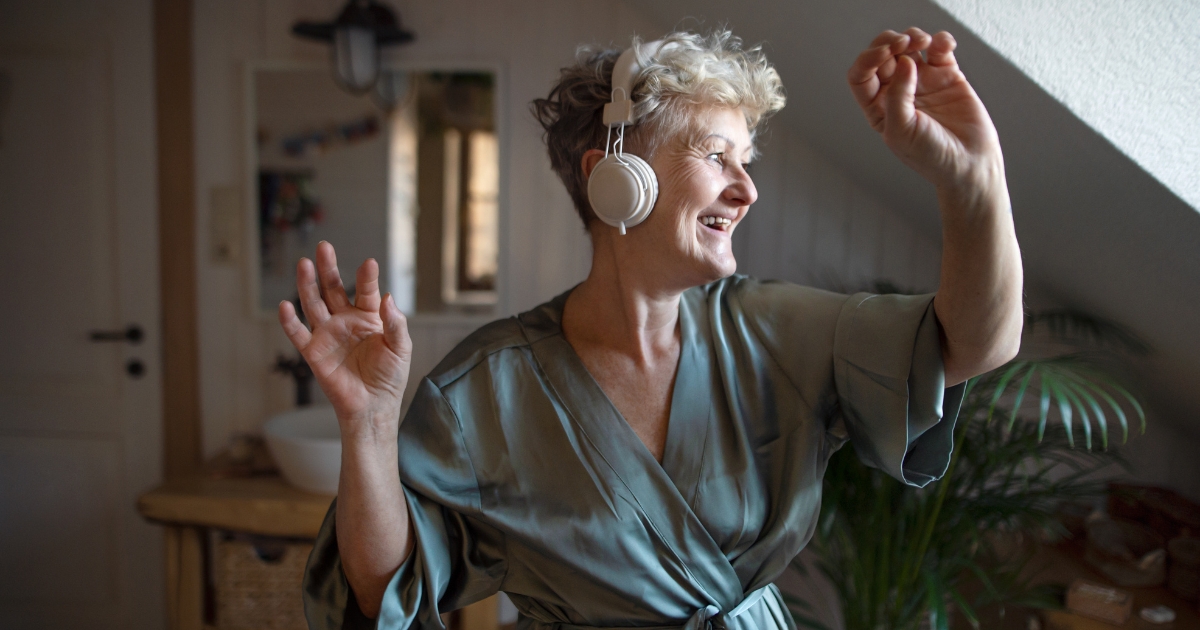
The Role of Self-Love in Strengthening Relationships After 50
Relationships can be some of life’s greatest joys, but they also require effort, understanding, and, most importantly, a strong foundation of self-love. For those navigating relationships after 50, self-love isn’t just beneficial; it’s essential. Learning how to take care of yourself emotionally, mentally, and physically will not only empower you but also enhance the connections you build with others.
If you’re looking for ways to foster deeper, more fulfilling relationships, focusing on self-love is the ideal starting point. Here are some actionable self-love tips for midlife adults that can help strengthen relationships while encouraging personal growth.
Why Self-Love Is Important for Relationships in Midlife
At any stage of life, relationships thrive when both individuals bring their best, authentic selves to the table. After 50, your life experiences, successes, and challenges shape who you are and what you bring to your partnerships. Without self-love, it’s easier to fall into patterns of seeking external validation, neglecting your own needs, or disconnecting from your personal goals.
When you prioritize self-love, you:
- Develop a better understanding of your needs and boundaries.
- Show up as your confident, authentic self in relationships.
- Cultivate resilience and emotional balance, reducing reliance on others to “fix” or “complete” you.
- Improve communication by expressing your thoughts and feelings clearly.
- Approach relationships as an equal partner rather than out of need or insecurity.
By nurturing self-love, you’re showing both yourself and your partner that you value who you are. This creates a healthier and stronger foundation for any relationship.

Practical Self-Love Tips for Midlife Adults
Self-love isn’t just a concept; it’s something you practice every day. Here are practical ways to start integrating it into your life:
- Practice Self-Acceptance
After 50, life has likely thrown its fair share of challenges your way. Whether it’s career changes, family dynamics, or dealing with aging, those experiences make you who you are. Accepting yourself fully, imperfections included, is a powerful act of self-love.
How to Begin:
- Recognize your strengths: Write down three things you love about yourself every day. They don’t have to be monumental; small wins like patience, kindness, or your sense of humor matter just as much.
- Acknowledge your growth: Reflect on the challenges you’ve overcome and the lessons you’ve learned.
- Stop comparing: Focus on your personal story and avoid comparing your life to others’. Everyone’s path is unique.
- Prioritize Your Physical and Mental Well-Being
Taking care of your body and mind is one of the most fundamental ways to practice self-care. It’s easier to show up for a partner when you feel energized, centered, and healthy.
Action Steps:
- Get moving: Engage in activities you enjoy, like walking, yoga, or swimming. Regular movement not only improves health but also releases endorphins, lifting your mood.
- Eat mindfully: Incorporate nutrient-rich foods into your diet to support sustained energy and wellness. Experiment with meals that help you feel nourished.
- Address mental health: Consider therapy, journaling, or meditation to process emotions and reduce stress. Prioritizing mental health equips you to approach relationships with clarity and calm.
- Set Healthy Boundaries
Boundaries are an essential expression of self-respect. They protect your emotional well-being and ensure that relationships remain balanced. After 50, learning to say “yes” to what serves you and “no” to what doesn’t can be transformational.
How to Establish Boundaries:
- Identify personal limits: Think about times when you’ve felt overwhelmed or uncomfortable. Use these moments to recognize where boundaries need to be set.
- Communicate clearly: Politely but firmly state your needs. For example, “I need some time for myself today to recharge.”
- Practice consistency: Say no when something doesn’t align with your values or priorities, even if it feels hard at first.
- Invest in Personal Passions
Losing yourself in a relationship can happen when you place your partner’s happiness above your own needs. While it’s wonderful to care for your significant other, maintaining your interests and independence is equally important. Having personal goals and hobbies nurtures your sense of fulfillment.
Steps to Tap Into Your Passions:
- Rediscover old hobbies: Have you always loved painting, baking, or gardening? Revisit these interests and carve out time for them weekly.
- Try something new: Whether it’s learning a language or picking up a musical instrument, exploring new avenues can be invigorating.
- Dedicate time to yourself: Block out time in your calendar for activities you love, guilt-free.
- Foster Emotional Awareness
Relationships thrive when both people feel understood. Developing self-awareness is a way to understand your emotions better and communicate them more effectively. Emotional intelligence makes navigating conflicts and intimate moments significantly easier.
Exercises to Build Emotional Awareness:
- Check in daily: Ask yourself how you’re feeling and why. Writing your thoughts down can help you identify patterns or triggers.
- Take a breath: If strong emotions arise, take a pause to process them before reacting. Responding calmly strengthens trust and communication in relationships.
- Be open: Share your feelings with your partner without assigning blame. For example, “I felt hurt when…” encourages dialogue rather than defensiveness.
- Create Space for Self-Care Rituals
Intentional self-care practices remind you that you are worthy of love and attention, even from yourself. Regularly investing in small, nurturing actions boosts your confidence and energy.
Ideas for Self-Care Rituals:
- Start your morning with a warm cup of tea or coffee and write down three things you’re grateful for.
- Take a warm bath, read a good book, or play your favorite music to relax after a long day.
- Declutter your living space to create an environment that feels peaceful and inviting.
- Schedule regular solo outings, like visiting a museum or heading to your favorite park.
- Surround Yourself With Supportive Relationships
While self-love is deeply personal, surrounding yourself with understanding, supportive people can enhance your personal growth. Positive relationships reinforce your sense of worth and offer encouragement along the way.
Ways to Build a Supportive Circle:
- Reconnect with old friends: Reflect on relationships where laughter and support came naturally and make an effort to rekindle those connections.
- Join interest-based groups: Whether it’s a book club or a hiking group, shared interests often lead to meaningful friendships.
- Seek professional support: A life coach or therapist can offer valuable guidance as you work on self-love and relationship skills.
How Self-Love Transforms Mature Relationships
When you prioritize self-love, you’ll notice profound changes in your relationships. Partners feel inspired and uplifted when they see someone who loves and respects themselves. Authentic self-love also discourages codependency, allowing both individuals to thrive independently while growing together.
Some benefits of practicing self-love in relationships include:
- Improved communication: Confident people express their needs and listen to others with empathy.
- Greater intimacy: Emotional transparency leads to deeper levels of connection.
- Better conflict resolution: Self-awareness allows you to approach disagreements with understanding rather than defensiveness.
- A happier, healthier partnership: When both people feel fulfilled and supported, the relationship naturally strengthens.
Self-love is not a destination but an ongoing practice that evolves with you. Taking conscious steps to nurture yourself doesn’t just benefit you; it also positively impacts the people you care about. By committing to these self-love tips for midlife adults, you’re creating the foundation for lasting and fulfilling connections, both with yourself and with a partner.











